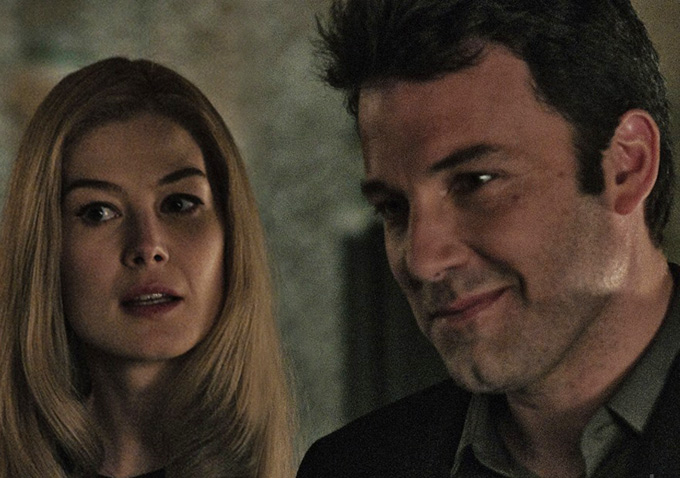By providing your information, you agree to our Terms of Use and our Privacy Policy. We use vendors that may also process your information to help provide our services. This site is protected by reCAPTCHA Enterprise and the Google Privacy Policy and Terms of Service apply.
Beyond ‘Gone Girl’: How ‘Force Majeure’ Explores the Dark Side of Married Life
Eric Kohn

 A seemingly happy couple on vacation face sudden danger that threatens the future of their relationship.
A seemingly happy couple on vacation face sudden danger that threatens the future of their relationship.
This deceptively simple premise provides the entire dramatic framework for Swedish director Ruben Ostlund’s “Force Majeure,” which exclusively takes place in the confines of a ski resort. As an isolated look at relationship priorities tested under extreme circumstances, “Force Majeure” delivers a provocative set of talking points. But movies don’t exist in a vacuum, and the timing of its arrival in theaters this week invites comparisons to more than one precedent.
Since premiering at the Cannes Film Festival, “Force Majeure” has been compared to “The Loneliest Planet,” Julia Loktev’s 2011 drama about the same basic situation. Both movies use a minimalist approach to explore the fallout of a life-threatening incident, and bathe the scenario in ambiguity. In the months following that initial comparison, David Fincher’s “Gone Girl” has arrived to offer another skeptical take on the bonds of marriage, completing an unexpected package of possibilities.
If “Gone Girl” offers the more acerbic take on long-term relationships, “Force Majeure” and “The Loneliest Planet” explore the same ideas as whispers. Collectively, they sound a chorus of uncertainty about married life.
READ MORE: Review: ‘Gone Girl’ is a Curious Choice for David Fincher
Fincher’s movie threads its perspective through an outlandish tale involving media scrutiny and the sham marriage that takes advantage of it, with Ben Affleck and Rosamund Pike already engaged in a cold war testing their bonds before the beginning of the story. The other films set the stage in more nuanced fashion, but speak to similar concerns.
 In “The Loneliest Planet,” newlyweds Gael Garcia Bernal and Hani Furstenberg wander the Georgian countryside, where they abruptly encounter a local who points a gun at them. Once Bernal’s character decides to hide behind his partner in fear — at which point the aggressor wanders away — his choice sets the stage for slow-boiling tensions that drift between the couple as they continue on their way. Loktev’s quietly experimental approach leaves the psychological turmoil created by this encounter up for debate. Whereas “Gone Girl” blatantly asserts that marriage is a charade, “The Loneliest Planet” turns that conclusion into an open-ended question.
In “The Loneliest Planet,” newlyweds Gael Garcia Bernal and Hani Furstenberg wander the Georgian countryside, where they abruptly encounter a local who points a gun at them. Once Bernal’s character decides to hide behind his partner in fear — at which point the aggressor wanders away — his choice sets the stage for slow-boiling tensions that drift between the couple as they continue on their way. Loktev’s quietly experimental approach leaves the psychological turmoil created by this encounter up for debate. Whereas “Gone Girl” blatantly asserts that marriage is a charade, “The Loneliest Planet” turns that conclusion into an open-ended question.
“Force Majeure” exists somewhere in between those extremes: It asks the question and presents a few possible answers without settling on a firm conclusion. Guided by a pair of mesmerizing performances, Ostlund lets his couple talk things through. The movie suffers at times from repeating the same awkward encounter, and sometimes it’s simply too enamored of its basic scenario, refusing to go any further than the conundrum it establishes upfront. But there are scenes in “Force Majeure” could have supplied the voiceover for “The Loneliest Planet.” Both movies linger in the characters’ doubt about their futures, but only “Force Majeure” lets us listen in as they think things through.
 Ostlund’s plot finds Tomas (Johannese Bah Kuhnke) and Ebba (Lisa Loven Kongsli) venturing to the French Alps with their two young children, when they face the onslaught of an avalanche on their second day. Tomas runs for cover, leaving his wife and kids behind; when the dust clears and it turns out everyone’s fine, he denies his actions. In a series of increasingly awkward exchanges, Ebba repeatedly brings up Tomas’ actions in the presence of other couples staying at the resort.
Ostlund’s plot finds Tomas (Johannese Bah Kuhnke) and Ebba (Lisa Loven Kongsli) venturing to the French Alps with their two young children, when they face the onslaught of an avalanche on their second day. Tomas runs for cover, leaving his wife and kids behind; when the dust clears and it turns out everyone’s fine, he denies his actions. In a series of increasingly awkward exchanges, Ebba repeatedly brings up Tomas’ actions in the presence of other couples staying at the resort.
As a slow-burn melodrama, “Force Majeure” is expertly crafted. Cinematographer Fredrik Wenzel bathes most scenes in the drab lighting of the resort’s interiors, establishing the superficiality of the couple’s relationship even as it continues to crumble.
But the close-ups tells a different story. Kuhnke does a remarkable job of embodying the overly confident Tomas as a man at war with confronting his flaws, and Kongsli’s ongoing attempts to force a confession out of him leads to a captivating set of encounters. Their uneasy chemistry works so well that the narrative struggles whenever it gets away from them: We could do without an on-the-nose discussion between Kuhnke and another married woman staying at the resort who enjoys her open relationship; ditto an amusing but half-baked digression involving a younger couple who witness Tomas and Ebba’s conundrum and discuss it among themselves.
However, so long as “Force Majeure” keeps its focus on Tomas and Ebba, it provides a fascinating rumination on its pertinent themes. It pits a certain objective gaze — Tomas’ actions in the inciting moment are inarguable and indefensible — against a more complex situation involving the aftermath. Will “sorry” cut it? Even Tomas isn’t sure.
 While the release of “Gone Girl” has provoked countless discussions of its bitter view on marriage, “Force Majeure” magnifies those same concerns with subtleties absent from Fincher’s tale. Though Fincher offers a wildly enjoyable dose of cynicism about the struggles of married life, “Force Majeure” shows how these concerns manifest in more credible terms, just as “The Loneliest Planet” explores what happens when they’re tacitly avoided. Together they form an insightful trilogy on modern relationships — or, rather, the rocky outcomes when their failings go unquestioned.
While the release of “Gone Girl” has provoked countless discussions of its bitter view on marriage, “Force Majeure” magnifies those same concerns with subtleties absent from Fincher’s tale. Though Fincher offers a wildly enjoyable dose of cynicism about the struggles of married life, “Force Majeure” shows how these concerns manifest in more credible terms, just as “The Loneliest Planet” explores what happens when they’re tacitly avoided. Together they form an insightful trilogy on modern relationships — or, rather, the rocky outcomes when their failings go unquestioned.
Grade: B+
READ MORE: ‘Gone Girl’ Rosamund Pike on Nailing the Part of a Lifetime (Spoilers)
By providing your information, you agree to our Terms of Use and our Privacy Policy. We use vendors that may also process your information to help provide our services. This site is protected by reCAPTCHA Enterprise and the Google Privacy Policy and Terms of Service apply.















